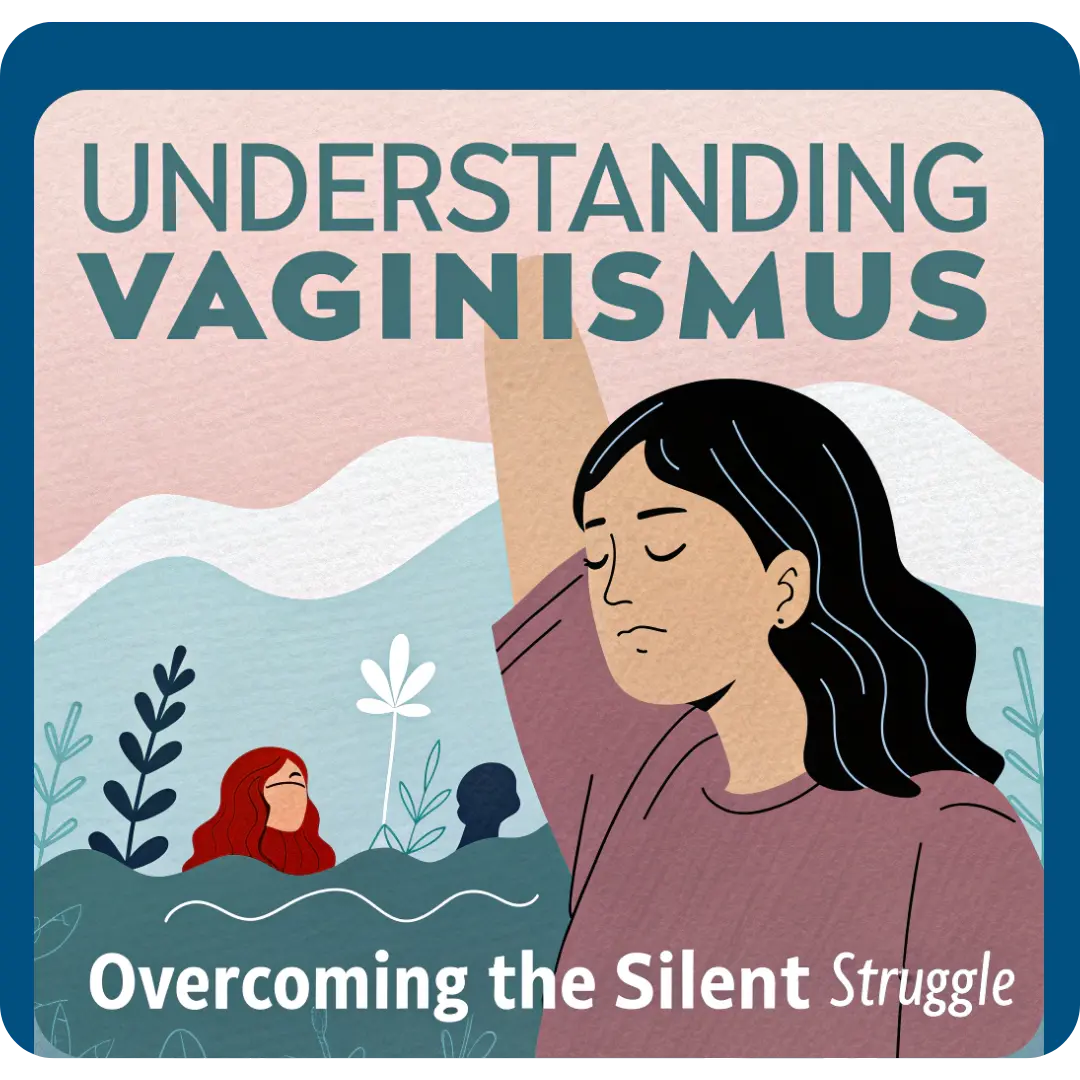Understanding Vaginismus: Overcoming the Silent Struggle
Table of Contents
I have often encountered women in my work who carry emotional wounds that impact their daily lives, relationships, and even their physical well-being. One of my clients, a woman in her 30s, had been struggling with a fear of intimacy and a deep sense of discomfort during physical closeness. She felt afraid of intimacy, and despite her strong emotional connection with her partner, physical touch triggered an intense, involuntary response.
After consulting with medical professionals, she was diagnosed with vaginismus, a condition that causes vaginal muscle spasms, making penetration painful or even impossible. We explored various vaginismus treatment approaches, working through emotional and physical healing techniques. After months of therapy, we finally reached a breakthrough—one that uncovered a deeply buried trauma.
During an Inner Child Therapy session, she revealed a painful childhood experience: she had been sexually abused by a cousin when she was just ten years old. This unresolved trauma had created a subconscious association between touch, pain, and fear. Each time she attempted intimacy, her body involuntarily reacted, closing off in pelvic floor tension, making penetration extremely painful.
By incorporating trauma-informed therapy, pelvic floor relaxation techniques, and deep emotional work, she slowly began to heal. The overwhelming fear of intimacy lessened, and she started to experience closeness, joy, and connection with her partner in ways she had once believed were impossible.
Vaginismus: More Than a Physical Condition
Many women believe that vaginismus is purely a physical issue, but in most cases, it has deep psychological and emotional roots. Factors such as past trauma, sexual anxiety, shame, and fear of intimacy can contribute to this condition.
Despite its prevalence, vaginismus remains underreported due to stigma and embarrassment. Studies estimate that 1 in 500 women may experience vaginismus at some point in their lives (Reissing et al., 2004). When left untreated, this condition can lead to relationship struggles, low self-esteem, and anxiety.
Fortunately, treatment for vaginismus is available, and recovery is possible. By addressing both the physical symptoms and the underlying emotional triggers, women can reclaim control over their bodies and build fulfilling intimate relationships.
Debunking Common Myths About Vaginismus
There are many misconceptions about vaginismus, especially in cultures where open discussions about sexual health are limited. Here are some of the most common myths:
❌ Vaginismus only happens the first time you have intercourse.
❌ It is purely a physical disorder.
❌ Only sexually inexperienced women can get vaginismus.
❌ If you have vaginismus, you’re not attracted to your partner.
❌ You just need to relax, and it will go away.
❌ If treated once, vaginismus will never return.
❌ Women with vaginismus always experience pain during penetration.
The truth is, that vaginismus is a complex condition influenced by both physical and psychological factors. Understanding this can make treatment more effective and reduce feelings of shame or isolation.
Common Triggers of Vaginismus
Understanding the root causes of vaginismus is the first step toward healing. Some common triggers include:
- Fear of intimacy or anxiety around sexual activity
- Shame or guilt related to sex, often due to cultural or religious
- Attempting penetration with a tampon or medical exam
- A history of painful sex or traumatic first-time
- Sexual trauma or past
- Generalized anxiety or phobias related to sexual activity
Since vaginismus is an involuntary response, many women feel frustrated that they cannot control their body’s reaction. However, through therapy, vaginismus treatment, and pelvic floor relaxation techniques, overcoming this condition is possible.
Is Vaginismus Psychological? Understanding the Mind-Body Connection
Many women wonder, is vaginismus psychological? The answer is both yes and no. While vaginismus involves involuntary vaginal muscle spasms, its root cause often stems from deeper emotional experiences, including:
- General anxiety disorder, leading to excessive worry and control
- Fear of painful childbirth, STIs, or
- Negative body image or beliefs that the vagina is too small for
- Strict religious upbringing or limited sex education leads to shame around
- Emotional detachment or lack of trust in a partner
Recognizing these connections is crucial for long-term healing. By addressing both mental health and physical symptoms, women can work toward lasting recovery.
Vaginismus Treatment: What Works?
If you or someone you know is struggling with vaginismus, several effective treatment options can help, including:
- Pelvic Floor Therapy – Strengthening and relaxing the pelvic floor muscles through targeted exercises can help reduce vaginal muscle spasms.
- Inner Child Therapy – Addressing past traumas through regression therapy can reveal emotional blocks that contribute to the fear of intimacy.
- Gradual Desensitization – Using vaginal dilators or guided insertion techniques can help the body adjust at a slow, comfortable pace.
- Open Communication – Educating yourself and your partner about sexual health and intimacy can reduce fear and anxiety.
- Cognitive Behavioral Therapy (CBT) – This method helps replace negative beliefs about sex with positive, empowering perspectives.
Healing is a gradual process, and every woman’s journey is unique. Being patient, seeking support, and progressing at your own pace is important.
Final Thoughts: You Are Not Alone
Vaginismus is more common than many realize, yet too many women suffer in silence. If you or someone you know is experiencing discomfort during sex, fear of intimacy, or pelvic floor tightness, please know that help is available.
If you’re looking for vaginismus treatment near me, we are here to support you. Reach out today to take the first step toward healing sexuality, emotional freedom, and fulfilling intimacy.
—
Sonali Mittra, Therapist and Consciousness Coach; Suvanjali Lama, Clinical Psychologist and Research Executive at Treta Foundation and Natasha Arora, formerly with Treta Foundation.
FAQs
Vaginismus is when the vaginal muscles tighten involuntarily during penetration (or attempts at it), causing pain or stopping entry altogether.
Causes can include fear of pain, sexual trauma, past painful intercourse, anxiety, medical issues like infections, or tight pelvic muscles.
Symptoms include pain during sex, difficulty with tampons, pelvic exams, burning or stinging, tightness and fear of penetration.
It’s underreported, but many women experience symptoms. It’s not rare; prevalence estimates vary.
Usually not fully on its own. Treatment helps a lot. Without addressing both physical and emotional parts, it often continues.
A health professional asks about your symptoms, history, tries a physical exam, rules out other causes of pain, and sometimes uses tests or a pelvic exam.
Treatments include pelvic floor physical therapy, vaginal dilators, counseling or sex therapy, relaxation & breathing techniques, and sometimes medical treatments.
Healing time differs per person. Some heal in a few sessions; others may take weeks or months depending on severity, consistency, and support.
Yes—it can cause emotional stress, avoidance of intimacy, frustration, or anxiety between partners. But recovery often improves connection and trust.
Yes. Gentle pelvic floor stretches, breathing exercises, using small dilators, mindfulness, and educating yourself about the body can help prepare the path to healing.





“I wish I had read something like this when I was younger. The stigma around talking about sexual health in our society makes so many women suffer in silence — posts like this matter
This article really hits home. The myth-busting section is so important: vaginismus isn’t only about first-time sex or “nerves,” it can happen even after being with a partner for years. Thank you for spreading clarity.
Debunking myths about vaginismus is so important. I shared this post with friends because many people still think it’s ‘just physical’. Thank you for educating people.
This post breaks down a misunderstood condition in a way that feels informative yet respectful. Appreciated the balanced insight and encouragement toward healing and awareness.
Thank you for addressing this sensitive topic with such clarity and compassion — it’s so important to talk about vaginismus without shame. This article offers comfort and understanding to many who may feel alone.